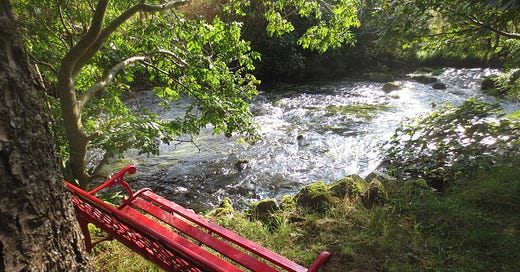For a good few Wednesdays to follow, I’ll be offering subscribers a special series of posts in collaboration with my husband David Knowles, whose Substack Elvers by Moonlight I hope you’re familiar with by now. It’s a project we worked on together back in 2014; the full explanation of what it is and how it came to be is below. But in short: when we move…
© 2025 Dr Sharon Blackie
Substack is the home for great culture



